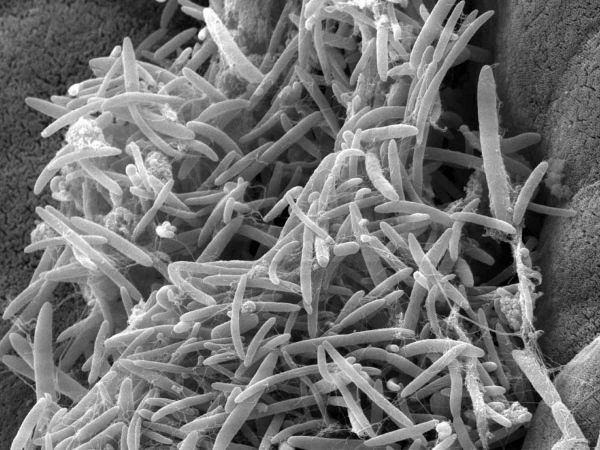Researchers at the Weizmann Institute of Science have shown in mice that intestinal microbes, collectively termed the gut microbiome, may affect the course of amyotrophic lateral sclerosis (ALS), also known as Lou Gehrig’s disease. As reported today in Nature, progression of an ALS-like disease was slowed after the mice received certain strains of gut microbes or substances known to be secreted by these microbes. Preliminary results suggest that the findings on the regulatory function of the microbiome may be applicable to human patients with ALS.
“Our long-standing scientific and medical goal is to elucidate the impact of the microbiome on human health and disease, with the brain being a fascinating new frontier,” says Prof. Eran Elinav of the Immunology Department. His team performed the study together with that of Prof. Eran Segal of the Computer Science and Applied Mathematics Department. Segal elaborates: “Given increasing evidence that microbiome affects brain function and disease, we wanted to study its potential role in ALS.” The study was led by postdoctoral fellows Drs. Eran Blacher and Stavros Bashiardes, and by staff scientist Dr. Hagit Shapiro, all in the Elinav lab. They collaborated with Dr. Daphna Rothschild, a postdoctoral fellow in Eran Segal’s lab, and Dr. Marc Gotkine, Head of the Motor Neuron Disease Clinic at Hadassah Medical Center, as well as with other scientists from Weizmann and elsewhere.
The scientists started out demonstrating in a series of experiments that the symptoms of an ALS-like disease in transgenic mice worsened after these mice were given broad-spectrum antibiotics to wipe out a substantial portion of their microbiome. In addition, the scientists found that growing these ALS-prone mice in germ-free conditions (in which, by definition, mice carry no microbiome of their own), is exceedingly difficult, as these mice had a hard time surviving in the sterile environment. Together, these results hinted at a potential link between alterations in the microbiome and accelerated disease progression in mice that were genetically susceptible to ALS.
Read more at: Weizmann Institute of Science
Gut microbes such as these were found to have altered levels in ALS patients (Photo Credit: Weizmann Institute of Science)


